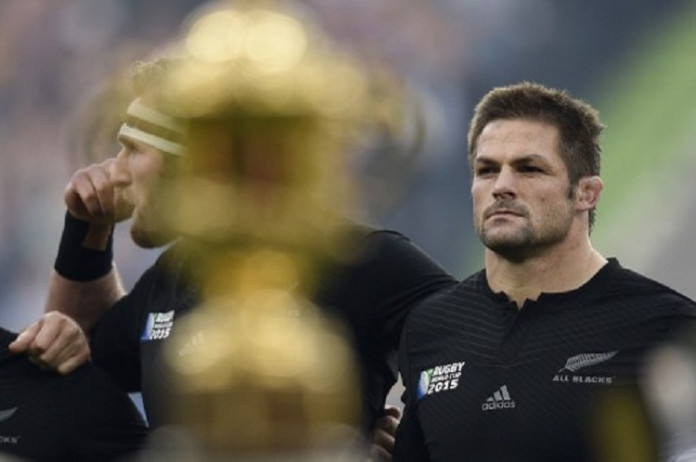Recently I rewatched Chasing Great, the Ritchie McCaw documentary, and I learnt a little more about what makes Ritchie arguably the best rugby player ever. That’s not the best player in the team, not the best player for his country or the best player in that position. It is a conversation starter that could stand up in a weak cup of milky tea: Is this bloke, Richard Hugh McCaw, the best rugby player to have ever played our game?
He wasn’t the fastest, the biggest, the tallest or the most flexible player to grace our game. I’m sure he could pass 15m off both sides from the base of the scrum but I’ve never seen it. I’m sure he could drop kick a goal from halfway or chip over an advancing defender and regain the ball while diving for the try line but I’ve never seen him do those things either. Actually I may have been exaggerating when I said McCaw could drop a goal from halfway but who can do that? The point is it was not any one individual physical skill that made him special. What I did see in the documentary that sets the two time Rugby World Cup winning Captain apart from the rest was his mental application. How he was able to focus on what was needed to get the job done.
After the 2007 RWC, where the All Blacks exit against the French at Millennium Stadium, there was a shift in the mental approach of the All Blacks that lead to a quantum leap in consistent top level performances. Mental skills in sport, or mental toughness, is all about having the ability to perform to your maximum under extreme fatigue and pressure.
It sounds like something every player would like in their kit bag. Imagine a team that played to the best of their abilities every time they took the field, with a coach that makes calm, clear and decisive game changing decisions during the match.
Mental skills training is just like any other skill training in rugby. It needs to be introduced to a team as an easy to understand concept, an idea that players can identify with and adopt into their own way of playing. To turn any idea into a concrete skill takes a training map to get you from here, your current competency, to the desired level of skill where players can perform the said skill at a high level, under fatigue and pressure, at speed or pace.
What preparation can be done to get the mind into the performance zone or bring it back from distraction? How can we stay calm as decision makers and leaders that need to make decisive calls in a split second?
Calmness under pressure can come from being prepared for all possible outcomes and also from your own belief in your skill set. An old coach of mine used to say, “tick all the boxes during the week”, which was his way of bringing calm through being prepared. We see visualisation being used as a way for kickers in rugby to take themselves into the performance zone and execute a skill to his maximum ability.
Communication plays a large part for teams to stay connected to each other and stay in the moment. Having a the defensive leader yelling, “ line speed “, as you prepare to repel an attack connects players back to the training drill that was performed during the week.
Physical cues can be used, like stamping your feet when you are under pressure, to bring a person back to the here and now – to bring them back to earth. Kieran Reid, the current All Blacks captain, looks off into the distance and then brings his focus back to the present as a way to stay in the moment with a calm demeanour.
Whether your team uses tactile, vocal or physical cues the aim is the same. To return the player to a place that they have prepared for, a place where they are in their own performance zone with a cool, calm head.
Let us hope that the team you support this weekend has worked on their mental skills like Richie McCaw did for the All Blacks because in elite sports 90% of the winning of the game is mental.




















